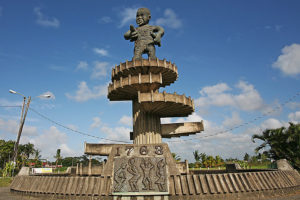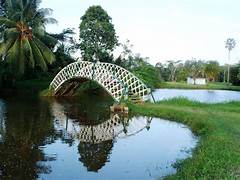
The intricate tapestry of culture woven throughout Guyana and the Caribbean emerges from a historical narrative deeply rooted in the dynamics of labour, migration, and colonialism. Let’s delve deeper into how these influences have shaped our music, food, dress, and festivals:




As you journey through Guyana and the Caribbean, take the time to unravel the layers of history, tradition, and innovation that define our cultural identity. Embrace the opportunity to delve into the unique cultural tapestry that binds this region together. From the rhythms of our music to the flavours of our cuisine, every aspect of our culture invites exploration offering a glimpse into the rich heritage and vibrant spirit of the people who call this enchanting corner of the world home.
Guyana, a gem nestled on the northeastern shoulder of South America, is a paradise for nature lovers and adventure seekers. Its lush rainforests, diverse wildlife, and rich cultural heritage make it a unique destination that offers an authentic, off-the-beaten-path experience. However, to fully enjoy the beauty and charm of this country, it is crucial to plan your visit during the right season.
The climate in Guyana is tropical, characterized by high temperatures and significant rainfall throughout the year. However, the country experiences two main seasons: the dry season and the wet season. The dry season, which runs from September to early December and from late February to April, is generally considered the best time to visit Guyana. During these months, the weather is relatively dry and the temperatures are more comfortable, making it ideal for outdoor activities such as hiking, bird watching, and exploring the country’s stunning natural landscapes.

The dry season also coincides with some of the country’s most vibrant cultural events. In February, the streets of Georgetown, the capital city, come alive with the colorful and lively Mashramani festival, which celebrates Guyana’s Republic Day. This event features spectacular parades, music, dance, and food, offering visitors a unique opportunity to immerse themselves in the local culture.
On the other hand, the wet season in Guyana, which occurs from May to August and from mid-December to mid-February, is characterized by heavy rainfall. While this may deter some visitors, it is worth noting that the rain typically falls in short, intense bursts, leaving plenty of time for exploration and adventure. Moreover, the wet season brings its own unique charm. The rainforests become even more lush and vibrant, and the water levels in the rivers and waterfalls increase, making them even more spectacular.
Visiting Guyana during the wet season also offers the opportunity to witness the country’s incredible biodiversity in full bloom. The rain brings a surge of life to the forests, with many species of birds, mammals, and insects becoming more active. For wildlife enthusiasts, this can be an incredibly rewarding time to visit.
However, it is important to note that travel during the wet season can be more challenging. Some roads may become impassable due to flooding, and certain activities may be limited. Therefore, if you choose to visit during this time, it is advisable to check the weather forecasts regularly and plan your activities accordingly.

In conclusion, the best time to visit Guyana largely depends on your interests and what you want to get out of your trip. If you prefer warm, dry weather and want to participate in cultural events, the dry season would be the ideal time for you. However, if you are a nature enthusiast who doesn’t mind a bit of rain and wants to experience the country’s wildlife and natural beauty at its peak, the wet season could be an equally rewarding time to visit. Regardless of when you choose to go, Guyana promises an unforgettable experience filled with breathtaking landscapes, rich culture, and incredible wildlife.
Cricket is a celebration of sports history in Guyana. The Cricket Carnival event is held in honor of the country’s first cricket team, which was formed in 1891. The team was made up of players from all over the country, and it was the first time that cricket had been played in Guyana. Since then, cricket has become an integral part of the country’s culture… WEBSITE: TravelGuyana
